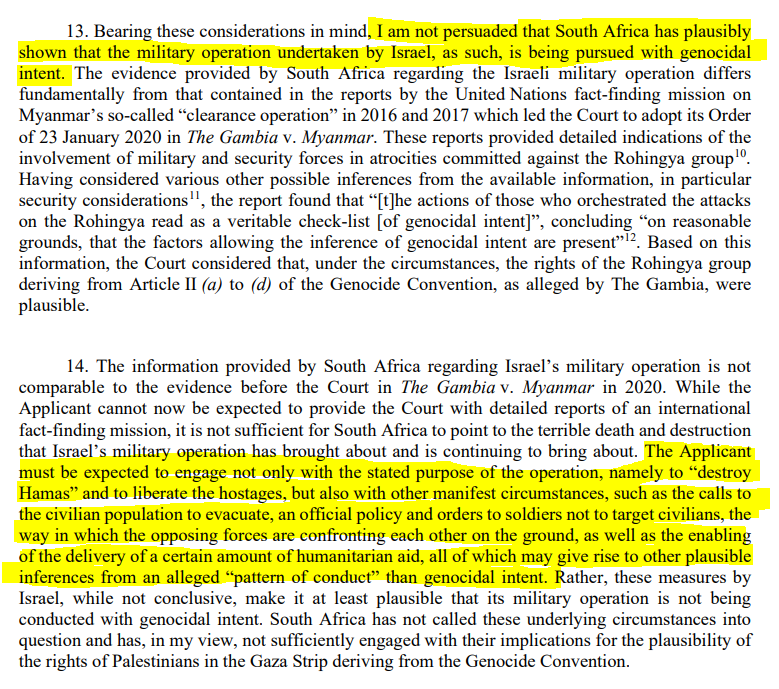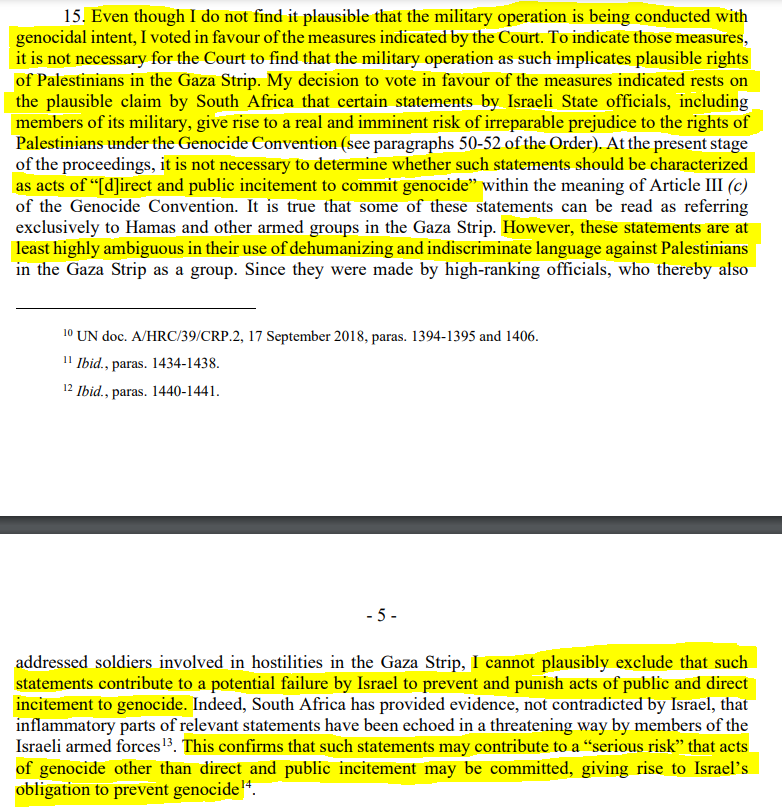I think this order is in line with what most of us were expecting. The Court could have done more? Yes. The Court could have done less? Yes. Is this a "win" for South Africa? Yes. Is it the best win of the century? No.
First the big stuff: There is a risk of irreparable harm for Palestinians under the genocide convention. That is huge. The ICJ was clear that Palestinians are a protected national group. Think of this next time someone tells you "there is no such thing as Palestinians"
Then the not-so-good: many will be disappointed that there was no order for a ceasefire, but remember: we were not really expecting that, given the big and complicated debate about self-defence in occupied territory.
Could the ICJ have done more? Yes. As @AdHaque110 said, it could have told SA to try and get Hamas to sit in a negotiation table and told Israel that if this happens, it has an obligation to negotiate in good faith towards a ceasefire.
It is also not ideal that, from what was read, the order is not too detailed as to how Israel is meant to comply with its obligations not to commit genocide. But it does need to report to the Court and presumably the Court can say it is not doing enough.
But to finish on a positive, remember: Israel's claim that it is not doing anything wrong and it can continue to act as it is doing now, has been disproven. They LEGALLY need to change course. What this new course looks like is to be seen, yes. But this is still a good thing
• • •
Missing some Tweet in this thread? You can try to
force a refresh






